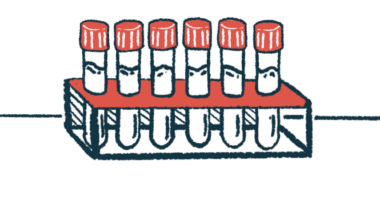Cemiplimab Partially Treats Skin Cancer in Man With AAV
The man also had kidney disease, according to case report

An 87-year-old man with ANCA-associated vasculitis (AAV), kidney disease and cutaneous squamous cell carcinoma (cSSC) — a type of skin cancer — partially responded to cemiplimab treatment without developing kidney complications or immune-related side effects.
However, his response to cemiplimab was delayed as the tumor initially grew, but regressed weeks after.
“Clinicians should be careful to not prematurely cease treatment if initial asymptomatic progression is suspected; particularly in cases without alternate treatment options,” the researchers wrote.
The case report, “Safety of cemiplimab for advanced cutaneous squamous cell carcinoma in a patient with p-ANCA-associated vasculitis,” was published in Journal of The European Academy of Dermatology and Venerology.
Among other indications, cemiplimab, marketed as Libtayo, is approved to treat people with cutaneous squamous cell carcinoma that has spread or cannot be cured by surgery or radiation. It is a so-called immune checkpoint therapy designed to recognize and attach to PD-1 — a protein found on immune cells called T-cells. This prevents the binding of PD-L1 on cancer cells to PD-1, boosting the immune system’s ability to kill cancer cells.
However, PD-1 also regulates autoimmunity, which happens when the immune system mistakenly attacks the body’s own tissues. Because cemiplimab blocks PD-1 activity, immune-related side effects such as autoimmune glomerulonephritis (a type of kidney disease) can occur.
In this study, reesearchers in Australia described the case of an 87-year-old man with AAV-associated kidney disease and recurring cSSC that could not be surgically removed.
The man came to the oncology clinic with a primary tumor and three smaller tumors on the top of his head. He had been diagnosed with cSSC of stage T3N1M0 (a system that categorizes cancer according to size, number of affected lymph nodes and whether it spread to other body parts), undergone surgery, and completed radiotherapy for the cancer three months before attending the clinic.
His AAV-associated kidney disease was treated with steroids given into the vein, oral prednisolone and oral cyclophosphamide (an immunosupressant). That was followed by another immunosupressant known as azathioprine as maintenance. At the time of his cSSC diagnosis, he was taking only low-dose azathioprine, which he stopped using once his kidney disease stabilized.
Because of his age, the number of tumors and the increased chance of them returning, the man was reluctant to undergo another surgery. After discussions between the patient and a multidisciplinary team, he started into-the-vein treatment with cemiplimab at a dose of 350 mg every three weeks. The clinicians monitored his kidney function with weekly blood tests.
After 15 weeks of treatment, they noticed the tumors had grown, but because the patient had no side effects or alternative treatment options, cemiplimab therapy continued. The tumors regressed at week 33 of treatment, and kidney disease remained stable without any immune-related side effects.
In conclusion, “immunocompromise, due to underlying autoimmune dysregulation and prior immunosuppression, may have contributed to the delayed response in this case — highlighting the need for further study of checkpoint inhibitors in immunocompromised patients,” the researchers wrote.







